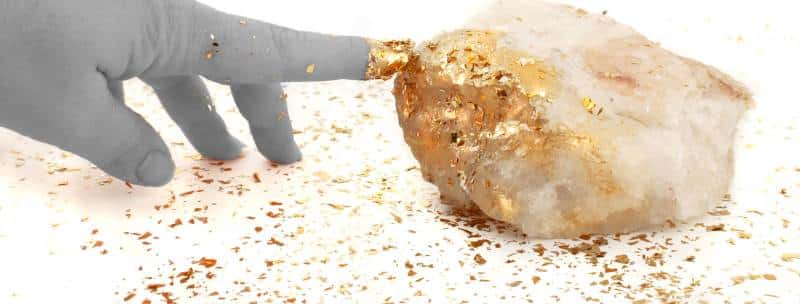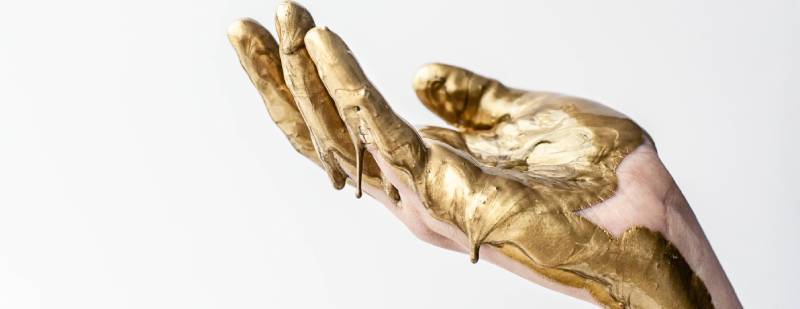It is a phrase that infers that one is able to generate wealth easily. Simply by touching a project, you can turn it into gold, coming from the myth of King Midas.
When one has the “Midas touch” means we can make money easily with minimal involvement. It comes from the Greek myth of King Midas, who was given a gift from a Satyr that allowed him to turn everything he touched to gold.
Read on to learn more about this idiom of English, where it comes from, and how to (use it in conversation and writing.
What Does The “Midas Touch” Look Like?

People who can turn anything they touch into a financial windfall are said to have the “Midas Touch.” This idiom of English comes directly from the Ancient Greek myth of King Midas, in this myth, the wealth seeking king was gifted with a wish by the Satyr for saving its life. The gift was anything the king touched turned to gold.
We all know someone that no matter what they try to do, it always turns out well. So well that they seemingly never are concerned about money because it appears in everything they do. This uncanny ability to make money where others wouldn”t is called having the, “Midas touch.” Whether the ability comes from random chance or advanced knowledge in business or some other fact is unknown, but it is a characteristic that seems to be consistent over time.
Understanding The Idiom, “Midas Touch,” And Its Implications In Relationships With Others When Used.

The phrase “Midas touch” is a relatively recent idiom of English used to describe an individual who is able to make money where others may not. The phrase implies that in a consistent manner, the individual is able to profit from their actions. The sense of others is that this person has a gift to make money. That the person has a special skill, or secret ability to make good on all business dealings.
In a predictable manner these people can leave any business negotiation or contracting with profits that one would likely not expect. These are special people to have around, and are often put into positions of finalizing contracts or made the face of the company to promote its success.
The phrase, “Midas touch,” can come to us from both familiar and unfamiliar sources. Our partner, coworker, friend, or boss, can be astounded at our success, and at the same time, benefit along with us. But accolades for our “Midas touch,” can come to us from unfamiliar sources as well. For example, fans of business following our successes, or with people trying to find the same success by following and mimicking our career.
On rare occasions, the phrase can be used sarcastically by others, who notice that it is difficult for you to close deals or make a profit; ” you have the Midas touch, don”t you?”
It is important to note that along with the ability to turn situations into gold, there is a concurrent responsibility to continue to produce. There can be in fact a great pressure that goes along with the ability to make lots of money. The high producer is in a competition with themselves to meet even loftier objectives in money making.
What then if on occasion, they fail to turn the situation to gold? What impact does failure have on a person with the “Midas touch?” Let’s look at this idiom historically to find out.
Historical Significance Of “The Midas Touch”

Our own personal history tells us that this phrase can pass through moments in our lives with a degree of frequency where we see individuals or ourselves turning business and negotiations into money. While the idiom may be used more these days in a time of economic advantage, it was first coined in the early sixteen hundreds.
In much the same way as it is used today, farmers who brought in an abundance of crops were said to have the “Midas touch” but what is the reference to Midas all about? King Midas was a figure in Greek mythology who”s great wealth ultimately caused the downfall of his family and ultimately his untimely death.
As the myth goes, King Midas, a vain man, put materialism and image ahead of all things in life. Affable when necessary, Midas through an act of kindness, gained the favour of a Satyr who in thanks offered him one wish. Midas made quick use of the wish, and had everything he touched turn to gold. At first glance, the perfect wish that would bring wealth and power beyond reason, but the reality of his hasty wish soon made itself clear when his daughter turned to gold by the touch of his hand.
The loss of his family was only the beginning of his great losses. One by one, his entire family fell victim to his “Midas touch”, in the end, Midas gripped with sorrow, slowly starved to death, as each time he tried to eat his food turned to gold.
While the importance of the myth of Midas is to help us see the frivolity of possession of wealth over caring for people, it also in many ways depicts the great pressure and resulting change in someone”s life with the “Midas touch.” As we grow in wealth and power, we may be envied by some who are too short sighted to see the sacrifices of such a lifestyle.
With great wealth and power comes social isolation; like Midas losing his family as each turned to gold at his touch. The gradual starvation of Midas as all he tried to eat turned to gold; much like the moral starvation of vanity and self service.
What We Need To Know About The Idiom “The Midas Touch.”
It is important for us to know that while everyone wants to hear this phrase, it is something that randomly presents itself in our lives from time to time. Coming when least expected, a windfall of money is indeed a joy for us all. This being the case, the feelings of excitement and entitlement we feel can blind us to the broader implications of turning everything we touch into gold.
We are wise to simply accept that with good things comes some bad. While we may be exalted by our family, friends and coworkers for being so clever or so lucky to turn all our enterprises into money. We must also examine the downside of such a fate. The most wealthy have always been admired, and as such, have recruited fans who hang on each new endeavour to see the outcome. Fueled by the success of the person with the “Midas touch” the followers try to replicate the success for themselves.
The test becomes the need not to disappoint your followers. Such great pressure to continue to succeed has its own problems and can take a significant toll. As the pressure builds to continue to acquire wealth, a subtle shift in lifestyle begins, insidious at first, the individual with the Midas touch may begin to restrict their lives more and more to work and the production of wealth.
This shift is of course at the cost of the relationships, friendship and love are gradually replaced by production, vanity, and image. In the later stages of this slide towards self involvement, the Midas touch begins to starve the person of life”s enjoyment and fun, and replace it with a hunger for contact and relationships of significance.
Other Idioms
Conclusion
When can we coin the phrase “Midas touch” when we see a person who turns each business activity into an unqualified success of money. These marvels of making deals are often admired and held up for their wealth and power. It is in these moments of celebration of riches that we must too look at the broader implications of turning everything we touch to gold.
Too much of anything can be problematic. Too much time spent making the next deal and counting coins is at a cost to those people who care for and love us. What may be better is to take heed of the King Midas myth; that we need to be sure to keep our vanity in check, and maintain as orders of importance, the people in our lives as our first priority.
Love and friendship cannot be bought. They are relationships that require time spent in cultivation; difficult to do when your time is spent in the pursuit of wealth. We must accept that the “Midas touch” is both a blessing and a challenge to try to maintain all things in life in a balance; only then are we truly wealthy.
Shawn Manaher is the founder and CEO of The Content Authority. He’s one part content manager, one part writing ninja organizer, and two parts leader of top content creators. You don’t even want to know what he calls pancakes.

